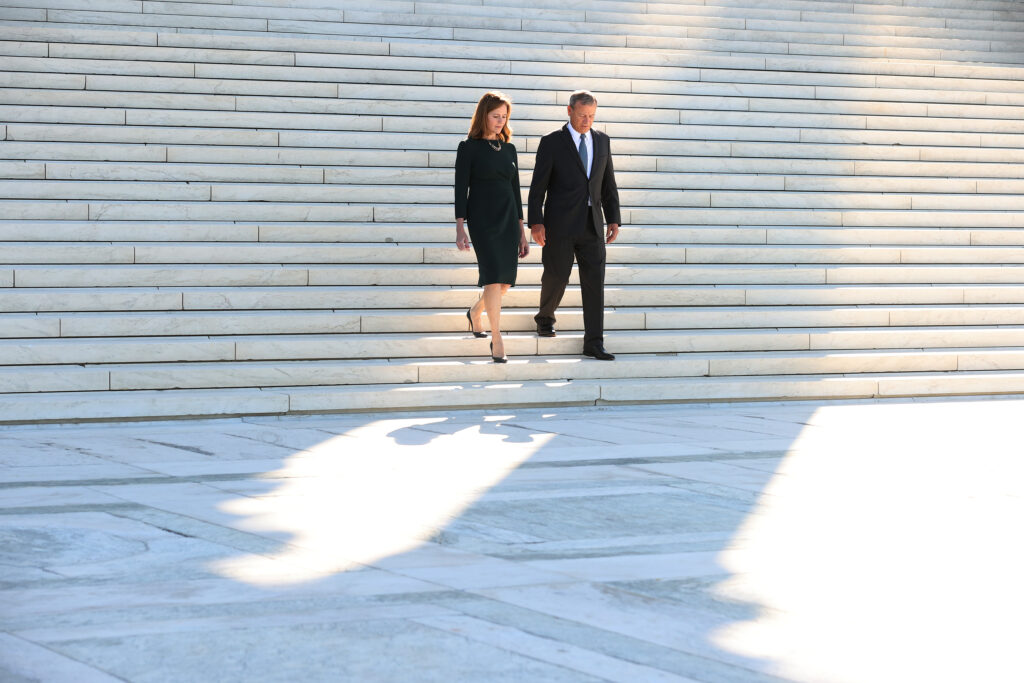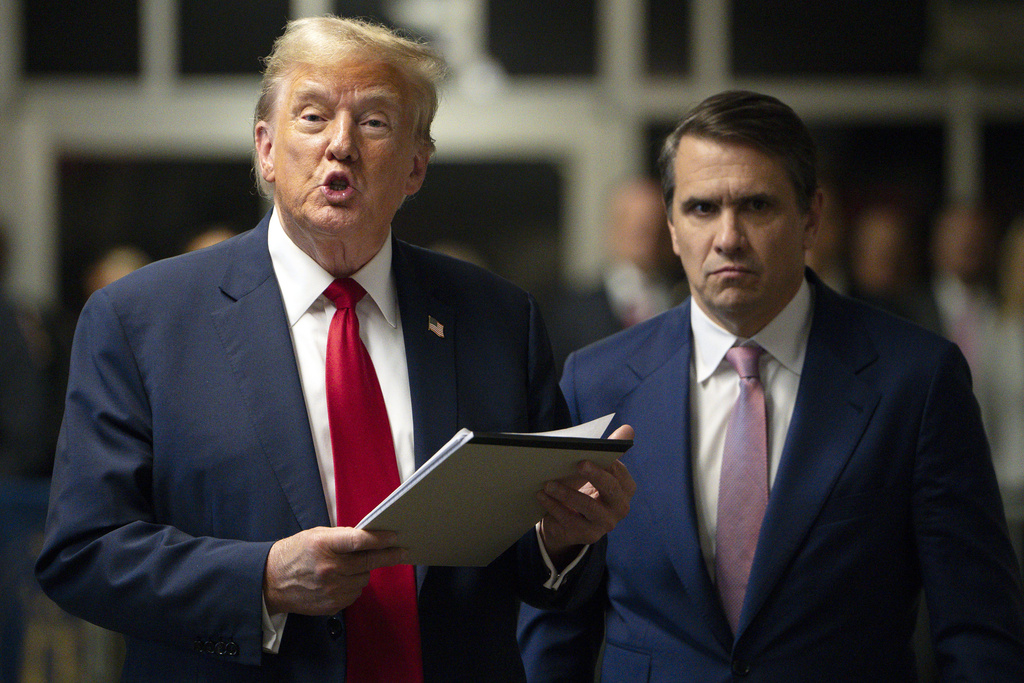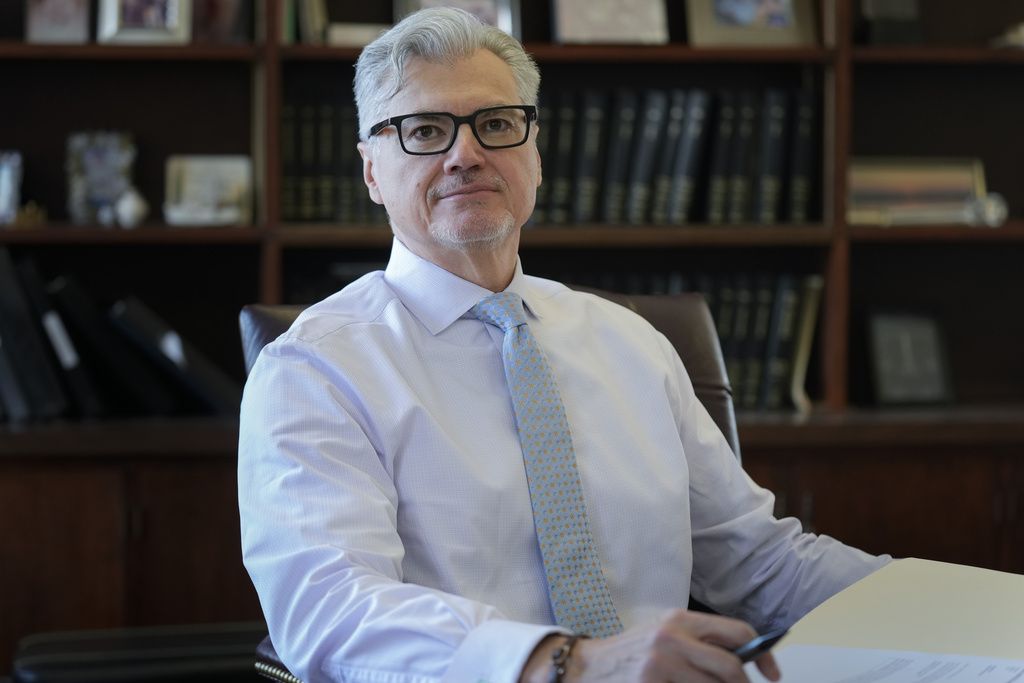Supreme Court Denies Trump’s Last-Ditch Bid to Block Sentencing: President-Elect Will Be Sentenced Friday
The court voted 5-4 to reject President Trump’s appeal, saying that the expected “unconditional discharge” of the sentence would impose an ‘unsubstantial’ burden on the new president.

The Supreme Court on Thursday night rejected President Trump’s request to block his sentencing in his hush-money case. The proceeding will take place as scheduled on Friday morning at Manhattan criminal court. Trump, who is at Mar-a-Lago, will most probably attend it virtually from Florida.
“The application for a stay presented to Justice Sotomayer and by her referred to the Court is denied,” read the short court order, which was published Thursday evening.
The ruling was five to four, with Chief Justice John Roberts and Justice Amy Coney Barrett breaking with their fellow conservative justices and joining the court’s three liberals.
The following reasons were cited by the justices as reasons to deny the application: “First, the alleged evidentiary violation at the President-Elect Trump’s state trial can be addressed in the ordinary course on appeal. Second, the burden of that sentencing will impose on the President-Elect’s responsibilities is relatively unsubstantial in the light of the trial court’s stated intent to impose a sentence of ‘unconditional discharge’ after a brief virtual hearing.”
The justices were swayed by a statement from Juan Merchan, the judge presiding over the case, in which he signalled he did not intend to impose any penalty – no jail, no probation and no fine. But the sentencing will officially enshrine Trump as a convicted felon, a victory for Alvin Bragg, the Manhattan district attorney who brought the case.

Thursday night, Trump was gracious toward the Supreme Court in a statement on his social media platform, Truth Social.
“I appreciate the time and effort of the United States Supreme Court in trying to remedy the great injustice done to me by the highly conflicted ‘Acting Justice,’ who should not have been allowed to try this case,” wrote Trump, referring to Judge Merchan, whom he’s persistently accused of political bias and ranted against over a gag order imposed by the judge that restricted Trump from criticizing the judge’s daughter, Loren Merchan, a Democratic operative.
“Every Legal Scholar stated, unequivocally, that this is a case that should never have been brought. There was no case against me. In other words, I am innocent of all of the Judge’s made up, fake charges,” Trump continued. “The pathetic, dying remnants of the Witch Hunts against me will not distract us as we unite and, MAKE AMERICA GREAT AGAIN!”
On Wednesday, Trump’s defense attorneys had asked the Supreme Court to block the sentencing to enter “an immediate stay of further proceedings in the New York trial court.”

Todd Blanche – who is poised to become the deputy attorney general for the Department of Justice – and John Sauer – set to become Trump’s solicitor general and chief representative to the court – argued that sentencing an incoming president would cause “grave injustice and harm to the institution of the Presidency and the operations of the federal government.”
They further urged the Court to halt the sentencing until the case itself had been properly reviewed. Trump’s defense alleges that the trial judge at New York state court violated the Supreme Court’s landmark ruling last year on presidential immunity, which found that presidents are immune against acts they performed in service to the presidency.
In May of last year, a jury found Trump guilty of 34 felony charges of falsification of business records in an alleged scheme to interfere with the 2016 election.

Mr. Bragg alleged that in 2016, with Election Day nearing, Trump’s then-personal attorney, Michael Cohen, made a $130,000 hush-money payment to the adult film star Stormy Daniels, whose real name is Stephanie Clifford, to buy her silence about her claim that she had a single sexual encounter with Trump at a celebrity golf tournament at Lake Tahoe in 2006. Trump was accused of directing Cohen to wire the money to Ms. Clifford and then disguise Trump’s reimbursement to Cohen as a legal fee. Mr. Bragg translated this transaction into multiple felony counts. Trump denies all charges and says he never had sex with Ms. Clifford.
Trump was scheduled to be sentenced on July 11. Yet on July 1, hours after the Supreme Court published its immunity decision, Trump’s attorneys asked Judge Merchan to dismiss the hush-money verdict and the indictment, arguing that Mr. Bragg used evidence during the trial that stemmed from the time Trump served his first term as president. During the trial, the prosecution called as witnesses two of Trump’s closest White House aides, Hope Hicks – who wept on the stand – and Madeleine Westerhout.
Judge Merchan had postponed the sentencing to September, then to early November, and then to after the election so it would not influence voters. He ultimately ruled against the argument of presidential immunity, writing that Trump’s conduct was related to personal and not to official matters.
Thursday’s Supreme Court’s ruling does not prevent Trump from continuing to appeal the case. It may even end up at the Supreme Court again, in a few years.

The sentencing is scheduled for Friday at 10am at Manhattan criminal court. Once he is sentenced, he will formally become a convicted felon and the first in the history of the United States to be sworn in as president on January 20.
Meanwhile, Trump was back at Mar-a-Lago Thursday evening, having attended President Carter’s memorial service at the Washington Cathedral in the morning. Back at his club, he hosted a dinner for Republican governors, and also announced his pick for the ambassador to Sweden: Christine Jack Toretti, an oil heiress, businesswoman and prodigious GOP fundraiser, whom he had nominated during his first presidency to become the ambassador to Malta. But the Senate did not confirm her, amid allegations dating back to her contentious divorce that she left a bullet-ridden target sheet at the office of her ex-husband’s doctor.
Trump is expected to appear for his sentencing virtually via video from Mar-a-Lago, which has been permitted by Judge Merchan.

